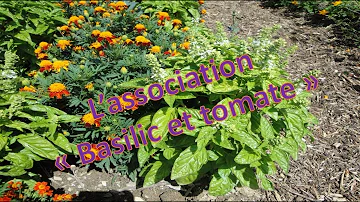Pourquoi les feuilles de basilic ont des trous ?

Pourquoi les feuilles de basilic ont des trous ?
Les altises sont de petits insectes déprédateurs, appartenant à l'ordre des coléoptères. Des petits trous, plus ou moins circulaires, sur des végétaux divers, attestent de leur passage et de leur nuisance. On dit que le feuillage est criblé.
Quelles fines herbes ne pas planter ensemble ?
L'estragon, l'oseille, le persil, la ciboulette et la coriandre se plantent bien ensemble, mais doivent l'être dans une zone ensoleillée avec un sol frais. Le thym, le laurier et le romarin peuvent être plantés ensemble sur un terrain bien ensoleillé.
What is Ocimum basilicum?
- Today, Ocimum basilicum (the scientific name for basil) grows in many places around the world. Many people even grow basil in their kitchens or gardens. This fragrant herb is used as a seasoning in a variety of dishes, and plays a key role in Italian and Thai cuisine.
How do you know if the basilic vein is suitable?
- After 4 weeks, ultrasound confirms that the basilic vein is suitable, as indicated by slight thickening and enlargement of the vein. At the second stage, the basilic vein is exposed to the axilla. A tunnel is created about 2 to 3 cm anterior to the basilic vein with a sheathed tunneler.
What is the use of Basil in medicine?
- The parts of the plant that grow above the ground are used to make medicine. Basil is used for stomach spasms, loss of appetite, intestinal gas, kidney conditions, fluid retention, head colds, warts, and worm infections. It is also used to treat snake and insect bites.
Where does Basil come from?
- Originally native to India, Asia, and Africa, basil was held to be a sacred and noble herb. In fact, the word “basil” comes from the ancient Greek “basilikhon” which means “royal”. Today, Ocimum basilicum (the scientific name for basil) grows in many places around the world. Many people even grow basil in their kitchens or gardens.













